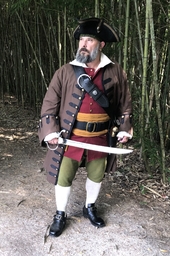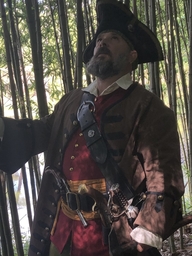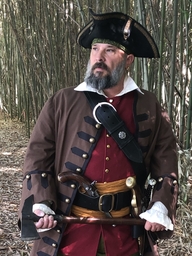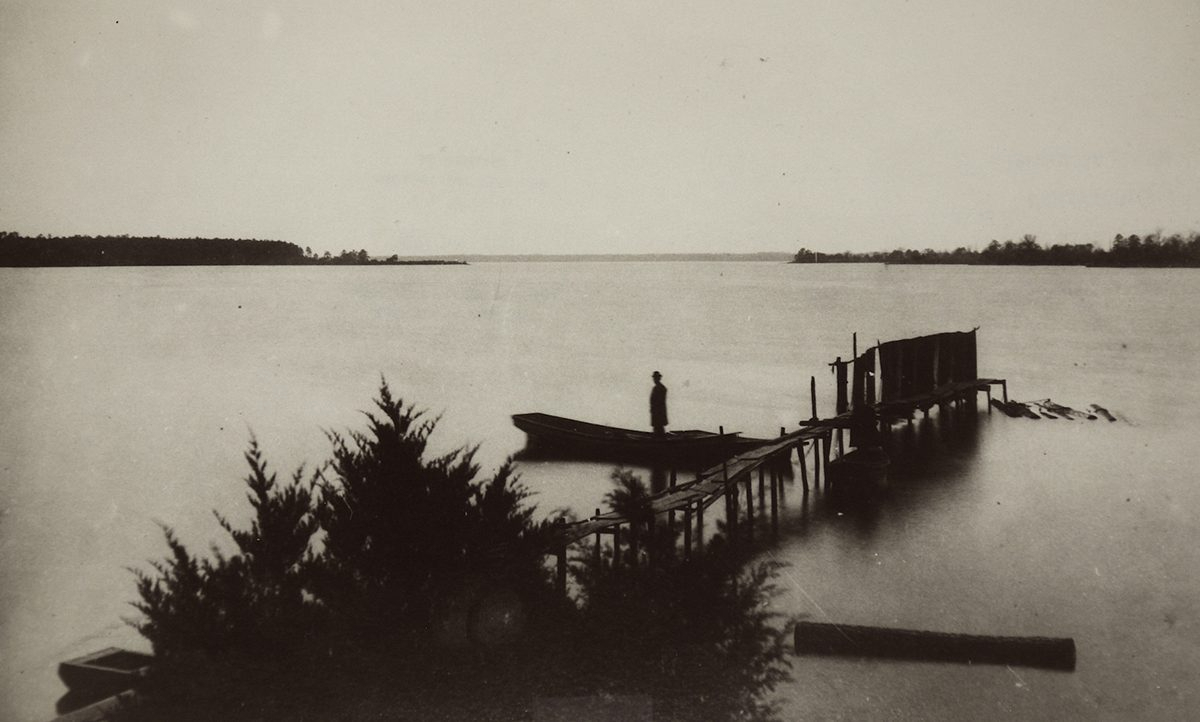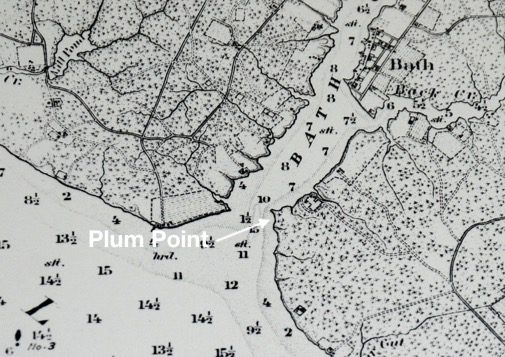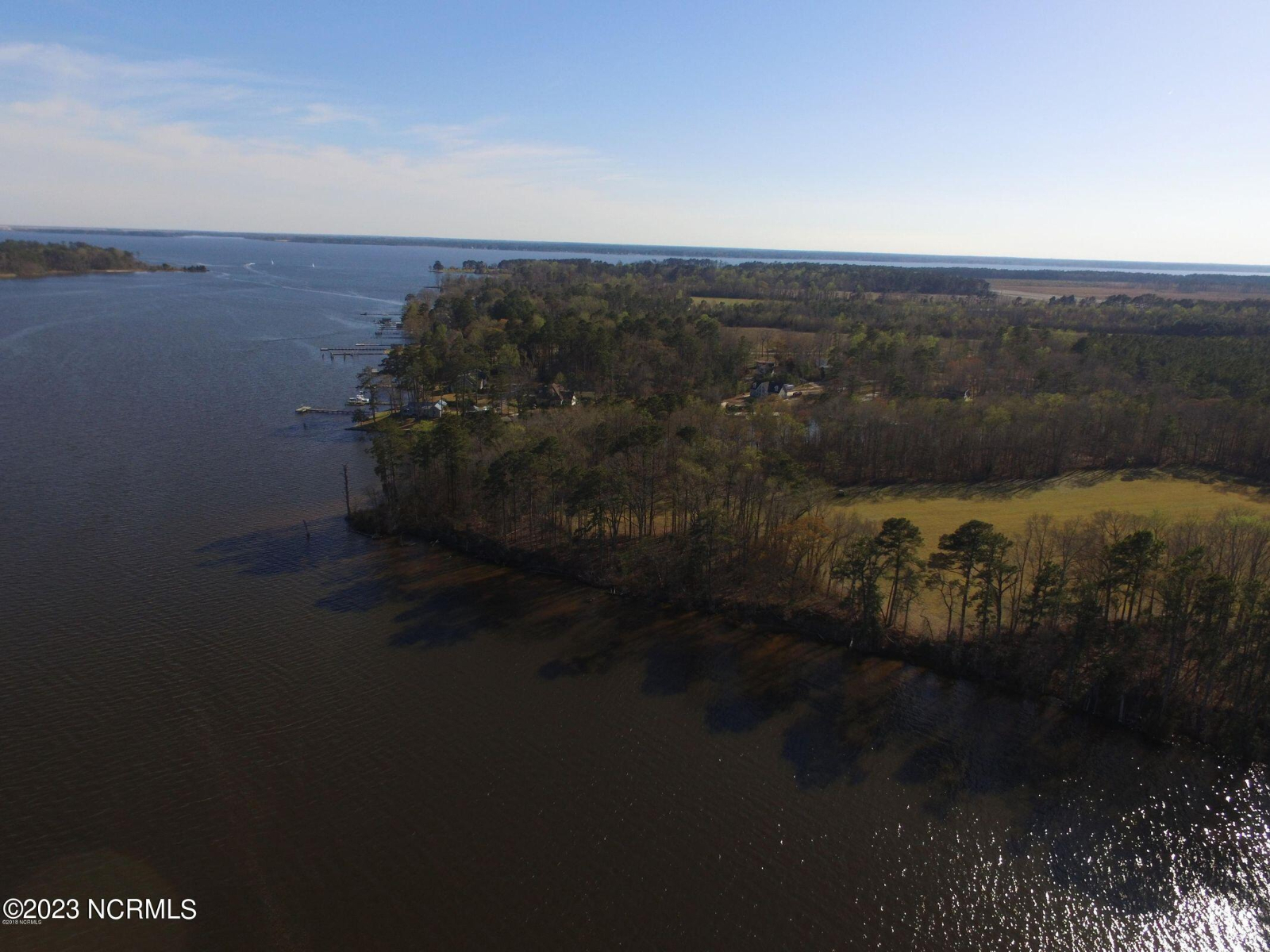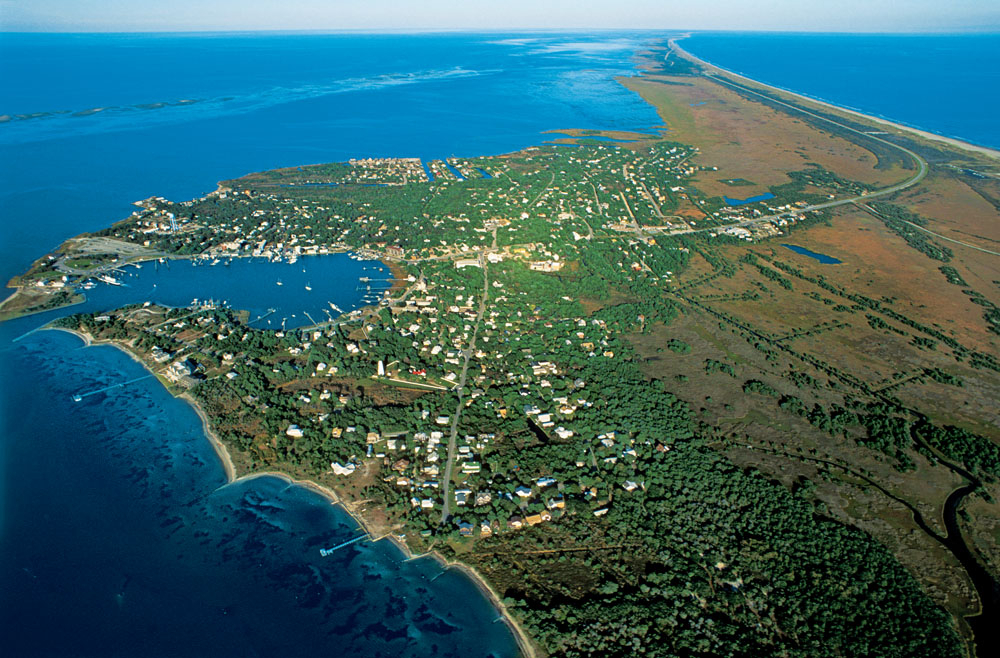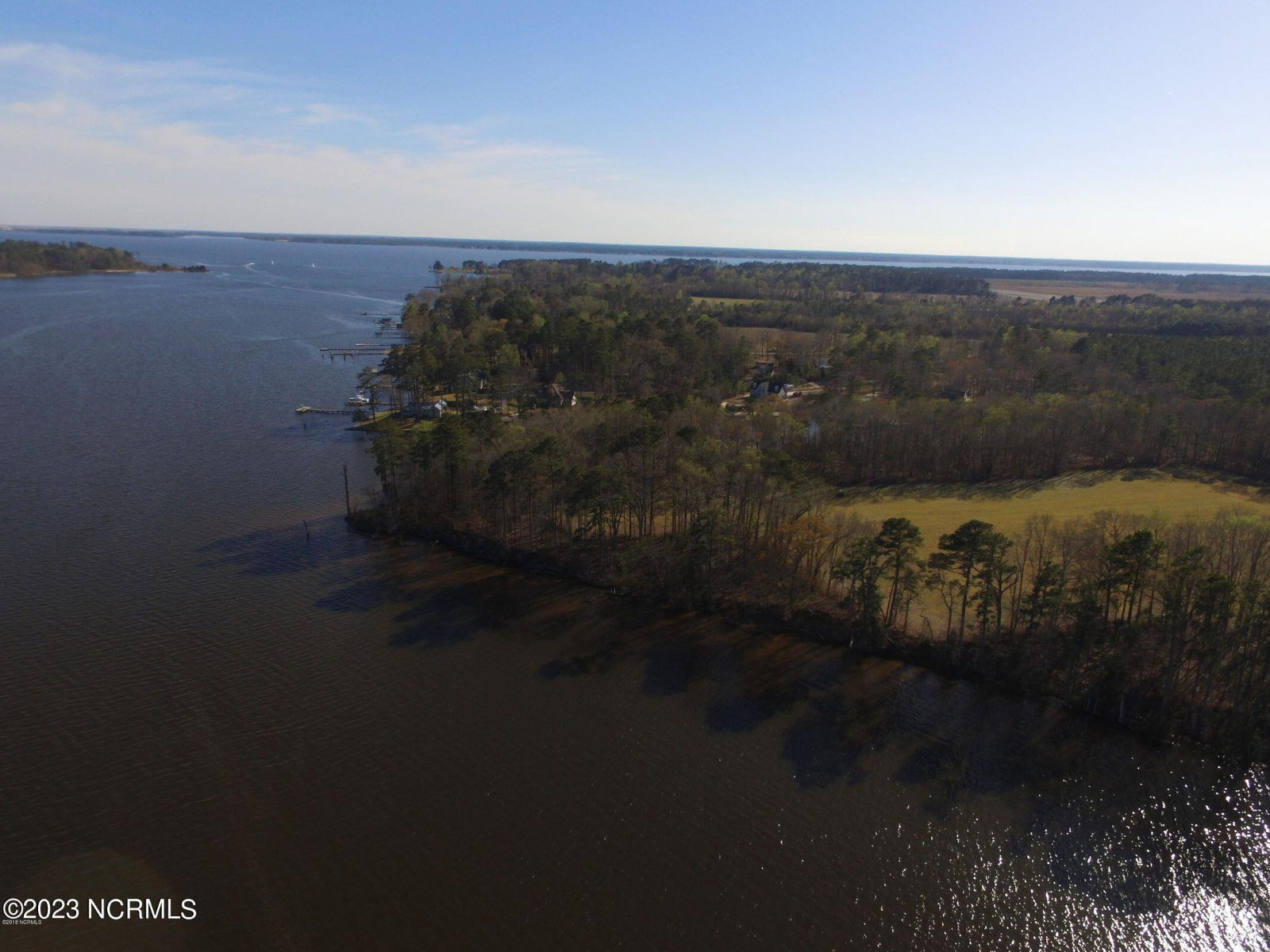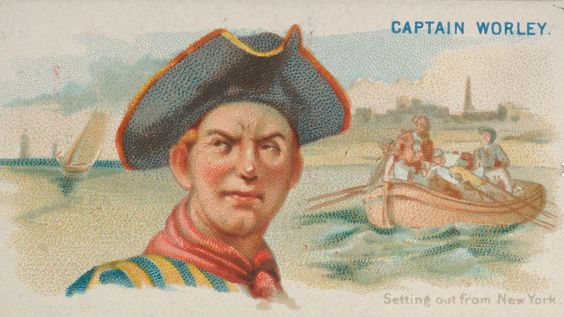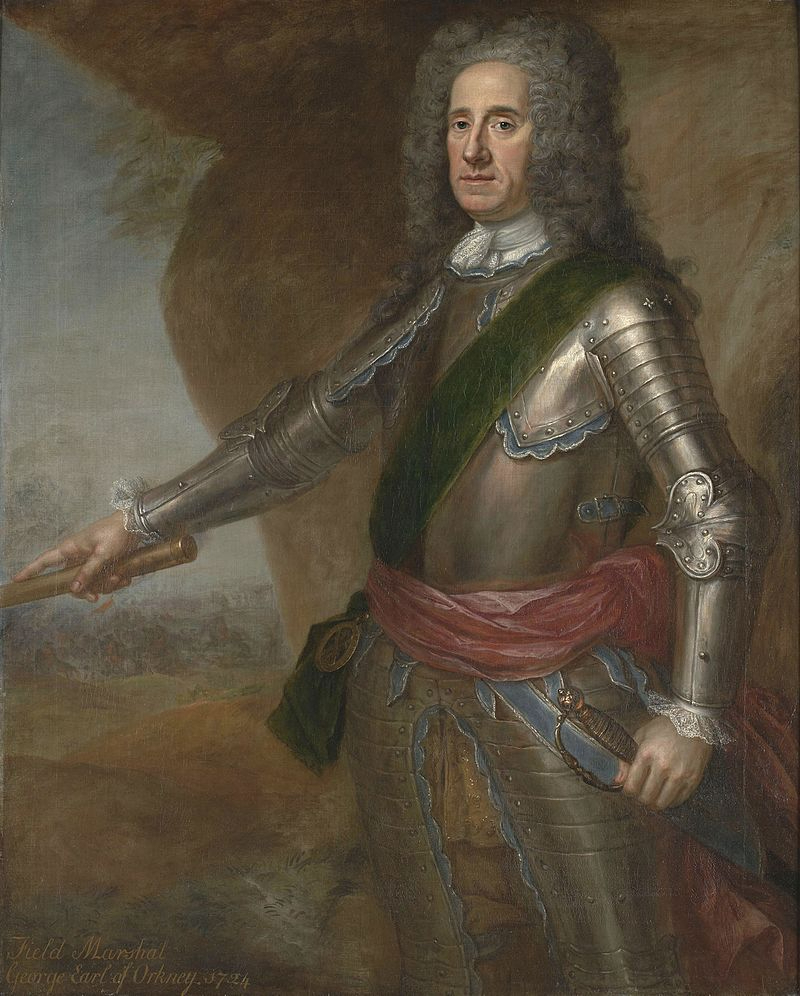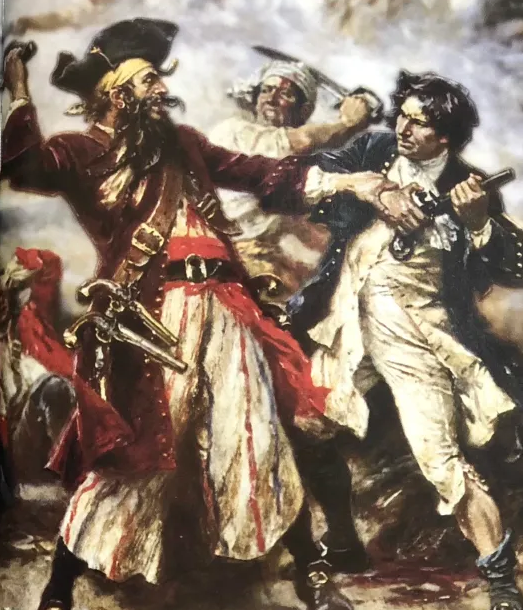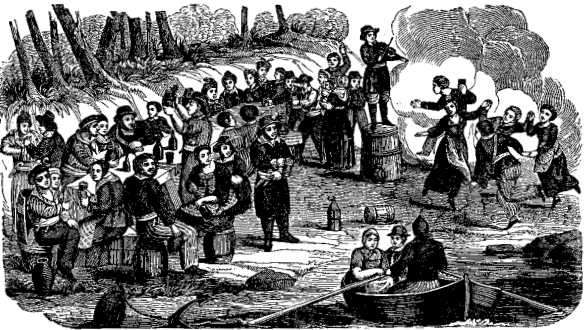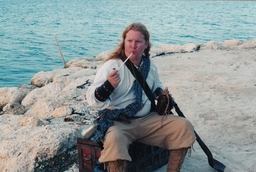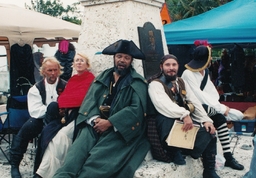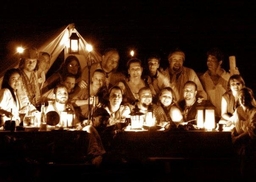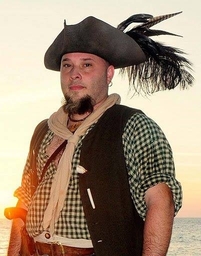-
Posts
38 -
Joined
-
Last visited
Content Type
Profiles
Forums
Events
Gallery
Everything posted by Sully Cross
-
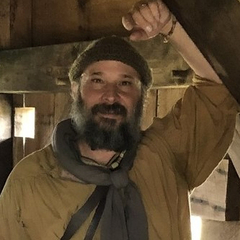
Robert Maynard, the Man who Killed Blackbeard
Sully Cross replied to Sully Cross's topic in Captain Twill
Lee wrote in his book, Blackbeard the Pirate, that the prize money for capturing Teach was to have been about £400 (£79,000 in 2024), but it was split between the crews of HMS Lyme and HMS Pearl (the two other ships that escorted Maynard. As Captain Brand and his troops had not been the ones fighting for their lives, Maynard thought this extremely unfair. He lost much of any support he might have had though when it was discovered that he and his crew had helped themselves to about £90 of Teach's booty. Brand was the one who had captured Israel Hands and a handful of Teach's crew in Bath. Brand and Maynard did not receive their prize money for another four years, with Brand receiving most of the share. Lee, Robert E. (1974), Blackbeard the Pirate (2002 ed.) -
Yes Johnson, Charles (1725). A General History of the Pyrates. Vol. I (3 ed.). London: T.Warner. Seitz, Don Carlos (2002). Under the Black Flag. Courier Dover Publications. pp. 162–164.
-
Located at the "Battery" in Charleston, SC stands this marker. It is located near where White Point once was.
-
We're a kooky bunch of seadogs located in Georgia looking to have a great time. With our nautical nonsense and salty sea shanties we're sure to lighten the mood. So if fun is on your horizon, look no further than our crew. Contact us for more details here or at Captain Jack Gresham at www.Facebook.com/Scoundrels-Scalawags
-

Finally, an opening in this bamboo jungle!
Sully Cross posted a gallery image in Pub Members Gallery
From the album: New Year, New Duds for Sully
-

New Year, New Duds for Sully
Images added to a gallery album owned by Sully Cross in Pub Members Gallery
With the 2024 season beginning I've has been busy putting together a new "Formal" kit. Little ol' me has never been to a formal get together, so I decided to get fancy. Here's what I have to show for it so far. -
From the album: New Year, New Duds for Sully
-
From the album: New Year, New Duds for Sully
-
According to legend, Blackbeard stayed for a time on Plum Point and visited the town of Bath on many occasions. Ghostly lights have been seen by some for years, and stories of buried treasure on that spit of land continue. Across from Plum point is Archbell Point, and where the homes of NC Governor Charles Eden and Tobias Knight once stood and hosted meetings with Blackbeard. It's fun to note in modern times the area near Archbell point is called Blackbeard's View. Across the creek from that is Teach's Point with roads such as Teachs Point Rd, Teachs Trace Ln, and Queen Ann Dr. In the town of Bath you have Blackbeard's Tavern Pizzaria and the Pirates Treasure Gift Shop. Down Bath Creek to Pamlico River and into Pamlico Sound you reach Ocracoke Island and the Outer Banks. Home to Blackbeard's' lookout and staging area from long ago. Today it's home to a small beach village, Blackbeard's Lodge, and the Pirates Quay Hotel. Every spring Bath hosts the arts festival Bathfest which attracts pirates far and wide, and in the fall Ocracoke Island throws Blackbeard's Pirate Jamboree. First image is a 1905 photo from Bath looking out to Pamlico River. Plum Point to the left and Archbell Point to the right. Second image is a 1820's map detail of Bath Creek entrance. Third image a modern photo of Archbell Point and Plum point in the distance. Fourth Image is Ocracoke Island with Pamlico Sound to the left, the Atlantic Ocean to the right.
-
Tobias Knight, government official, judge, and attorney, lived in Bath. The earliest record of Knight appears in the Colonial Records of North Carolina, where he is recognized as a member of the governing council of the colony. The records show that by 1712 Knight had married Catherine Glover, widow of former North Carolina Governor William Glover. Knight was chosen by Governor Charles Eden as Chief Justice of the Province, and served in this capacity until shortly before his death. The following year, he purchased a tract of land near Bath known as Archbell Point. This property had belonged to Landgrave Robert Daniel (one of the first to live in or near Bath) and Knight bought it from Daniel's widow. As a result of the transaction, Knight became a neighbor of Governor Eden. Blackbeard returned to Ocracoke, NC in late August 1718 with a French ship full of cargo. While his crew began unloading and storing it in tents on the beach, he set off in a small boat bearing presents for Bath. Arriving at midnight and the home of Tobias Knight, Blackbeard was welcomed inside and stayed, eyewitnesses later testified, “till about an hour before the break of day. A day later, Governor Eden granted him full salvage rights to the French ship (actually cargo from the La Toison d’Or and Rose Emelye) which Blackbeard alleged to have found abandoned at sea. Meanwhile a large parcel of sugar found itself into Knight’s barn, hiding itself under a pile of hay. After the battle of Ocracoke in November, sixteen members of Blackbeard’s crew were rounded up and brought to Williamsburg, Virginia to await trial. Blackbeard's head was given as a trophy to Virginia Governor Spotswood, who had it displayed on a tall pole in Hampton Roads, at a site now known as Blackbeard’s Point. The men waited for three months for the seemingly inevitable guilty verdict of piracy and death sentence. During this time some of the crew attempted to save their lives by turning on their deceased captain Blackbeard and becoming informants. Spotswood was in great need for information implying wrongdoing. He had intruded in North Carolina business by sending the crew to the adjoining colony to capture Blackbeard and his crew. Knight was accused of willingly dealing with Blackbeard according to the informants. Unfortunately, execution was inevitable for all but two of the accused. Samuel Odel was released because he was able to prove he was not actually part of Blackbeard’s crew. Odel was a man from Bath, NC who happened to sail to Ocracoke the night before the battle and was on board when Maynard attacked. The only fighting that occurred by Odel was out of self-defense. The other man let go was Israel Hands, the former sailing master for Blackbeard, who was pardoned. On March 12, 1719, the rest of the crew was quickly tried and found guilty without any leniency for the information provided. The exact date of the hanging of Blackbeard’s crew is unknown. Knight's trial began on 27 May 1719 at the home of Fredrick Jones. Governor Eden (his fellow conspirator) sitting with the governing council, heard the testimony. Knight spoke for himself; and his defense "leaves no doubt that he was an attorney of not inconsiderable ability," for the governor and council "investigated the charges and . . . gravely pronounced him entirely innocent." Nevertheless, Knight resigned the office of chief justice of the colony. Shortly afterwards, Captain Ellis Brand wrote to the Lords Commissioners of Admiralty complaining that Knight and others were still assisting pirates. Knight, however, died before an investigation could be launched. Sources: Walter Clark, ed., State Records of North Carolina, vols. 23, 25 (1904, 1906). J. Bryan Grimes, Abstracts of North Carolina Wills (1910). Francis L. Hawks, History of North Carolina, vol. 2 (1858). Robert E. Lee, Blackbeard the Pirate (1974). Ursula F. Loy and Pauline M. Worthy, Washington and the Pamlico (1976). William L. Saunders, ed., Colonial Records of North Carolina, vols. 1, 2, 4 (1886). Butler, Lindley. Pirates, Privateers, and Rebel Raiders of the Carolina Coast. Chapel Hill: University of North Carolina Press, 2000. Konstam, Angus. Blackbeard: America’s Most Notorious Pirate. Hoboken, NJ: John Wiley and Sons, 2006. Photo below is Archbell Point, NC in 2023. Former home to Tobias Knight and Charles Eden
-
Richard Worley's first prize was the capture of household goods from a shallop in the Delaware River near New Castle in September 1718. This attack was technically burglary rather than piracy, as according to British maritime law at the time the attack did not take place in international waters. Local authorities mistakenly attributed the attack to Worley's better-known counterpart Blackbeard, who had raided the same waterways earlier in the year. Vessels were armed and sent to intercept the robbers but, after cruising for several days without setting sight on Worley, returned empty-handed. Their second prize brought better luck as, upon capturing a sloop bound for Philadelphia, Worley also gained four additional crew members. A few days later they requisitioned another sloop bound for Hull which, as well as being in better condition, was fully provisioned which they had desperate need of. They left the Delaware and set out to sea to the Bahamas pursued by the 24-gun warship HMS Phoenix, he and his crew were able to evade capture. After six weeks off the Bahamas, he captured a brigantine and a sloop, increased his crew to about twenty-five and gained six cannons and numerous small arms. The brigantine was released but the sloop sunk. Worley sailed north in his ship New York's Revenge alongside a second larger ship now under captain of his former First Mate John Cole called New York Revenge’s Revenge. Cole's ship had been the prisoner transport Eagle, captured by them off Virginia the previous month. South Carolina Governor Robert Johnson received news that William Moody was near Charles Towne and sent four ships to find him. Instead they found Worley and Cole off of Sullivans Island. The pirate hunters split up and chased them down separately, capturing Cole some hours after, Worley was killed in the battle. Cole's ship was still carrying prisoners, including 36 women destined to be sold into indentured servitude who all died. Cole and his crew were taken in chains to Charles Towne where nineteen were tried, found guilty of piracy, and hanged at Whites Point Novemberer 24th, 1718.
-
These men were tried for the attacks on the sloop Francis on August 2nd, 1718 and the sloop Fortune on August 31st, 1718. All received death penalties except six. They were hanged Saturday, November the 8th, 1718 at Whites Point. Those names marked with * were omitted at the execution. No information has been found if they were acquitted, escaped, died in jail, or a clerical error. - Ignatius Pell, the boatswain turned King’s-evidence and was not charged - David Heriot (or Herriot or Harriot), the sailing master (chief navigator) escaped with Bonnet and was killed on Sullivan's Island before his trial - Thomas Nichols found not guilty - Rowland Sharp found not guilty - Jonathan Clarke found not guilty - Thomas Gerrard found not guilty - Daniel Perry - Robert Tucker - Edward Robinson - Neal Paterson - William Scot - Job Bayley - John-William Smith - Thomas Carman - John Thomas - William Morrison - William Livers aka 'Evis' - Samuel Booth - William Hewet - William Eddy aka 'Nedy' - Alexander Annand - George Ross - George Dunkin - Matthew King - Henry Virgin - James Robbins - James Mullet aka 'Millet' - Thomas Price - John Lopez - Zachariah Long - James Wilson* - John Brierly* - John Levit* - John Ridge* - Robert Boyd* - Thomas Carman* Wednesday December the 10th, 1718 Stede Bonnet was hanged at the same gallows Like Comment Share
-
Robert Johnson served as the governor of South Carolina from 1717 to 1719 and from 1729 to 1735. He was the son of Sir Nathaniel Johnson and inherited a considerable estate from his father. On April 30, 1717, he was commissioned governor of South Carolina. Johnson oversaw the suppression of the pirates who were preying upon the commerce of South Carolina and neighboring colonies. Fitting out an expedition, he personally commanded a victorious engagement with them off the bar of Charleston killing Richard Worley. A second expedition commanded by Col. William Rhett, captured Stede Bonnet resulting in his execution. In 1719, when the proprietary government was overthrown, the revolutionary convention, of which Arthur Middleton was president, requested him to continue in office if he would agree to administer it in the name of the king, but Johnson declined to do so, asserting the rights of the proprietors to whom he owed allegiance. Notwithstanding the loyalty thus shown to the proprietors, he was appointed first regular royal governor of the colony on December 9, 1729, and upon his arrival at Charleston, early in 1731, was joyfully received by the people. His administration was marked by the issuance of several acts regarding the granting of land to new settlers, and by a protracted boundary dispute with North Carolina, the two colonies being for the first time constituted entirely separate provinces. He aided James Oglethorpe in the settlement of Georgia by providing food and escort to his colonists. Johnson endeared himself to the people by his high-minded character, which won for him the title of the "good governor". He remained in office till his death, in Charleston on May 3, 1735.
-
Charles Eden was appointed governor of North Carolina on 28 May 1714. He is best known for his connections with two infamous pirates Stede Bonnet and Blackbeard (Edward Teach) Both of them surrendered to Governor Eden and received the King's Pardon. Upon promising to change their ways however, both would quickly return to piracy. In 1719 prominent North Carolinian Edward Moseley accused Governor Eden of profiting from Blackbeard's crimes. Moseley was arrested and fined for his accusations. Eden's secretary of the governor's council, Tobias Knight, was implicated when a letter written to Teach was found on the pirate's body at his death and by the fact that the cargo taken from a ship captured by Teach was housed in Knight's barn. Knight's letter mentioned the governor's desire to meet with Blackbeard and this was considered sufficient evidence that Eden colluded with the pirates, but no further proof was forthcoming. Four of Blackbeard's crew stated in depositions following their capture that they "went from Ocracock in a periange with Edward Thache to the house of Tobias Knight Secretary of North Carolina and carried in the said periange three or four Caggs of Sweet meets Some Loaf Sugar a bag of Chocolate and Some boxes the Contents of which they did not know that they got to the said Knight house about Twelve or one a Clock in the Night." Eden presented an account of his dealings with Blackbeard to the provincial council, which accepted his pleas of innocence. Nevertheless, Eden's reputation has long been clouded by his connections to Blackbeard. Eden died of yellow fever in Bertie County in 1722 at the age of 48
-
Alexander Spotswood after a long military career, was nominated in 1710 to colonial governor of Virginia, a post which he held for twelve years. During that period, Spotswood engaged in the exploration of the territories beyond the western border, of which he was the first to see the economic potentials. As the governor of Virginia, Spotswood's first preoccupation was to make sea routes safe and fight against the pirates. He was responsible for the famous pirate Blackbeard being hunted down and killed in 1718. Years later, between 1730 and 1739, Spotswood was Postmaster General for British America and, with his young friend Benjamin Franklin, extended the postal service network north of Williamsburg and improved its efficiency. At the outbreak of the War of Jenkins' Ear, Spotswood was called back into army service. Promoted to major general, he was put in command of the colonial troops stationed in America with the task of preparing a military action against the Spanish stronghold of Cartagena de Indias, but, in Annapolis, where he was to consult with the local governors, he died suddenly in 1740.
-
In November 1718, Lt. Robert Maynard was tasked with hunting down the pirate Blackbeard by Governor Spotswood of Virginia. While leading the HMS Pearl, Maynard lured Blackbeard into attacking his ship in the Pamlico Sound off North Carolina, and in the ensuing struggle he and his crew were able to kill Blackbeard and several of his men. Expecting to be rewarded for his actions, Maynard was never fully compensated or paid for the expedition. He was eventually promoted to commander in 1739, and to captain in 1740, before dying at the age of 66 in his home county of Kent, England.
-
Less than a week after Blackbeard’s blockade of Charleston Harbor on June 4, 1718, the pirate captain wrecked the Queen Anne’s Revenge at Old Topsail Inlet (Beaufort Inlet). In a brilliant maneuver, Teach marooned the majority of his rag-tag crew, and took command of his smaller sloop. He distanced himself from Stede Bonnet and accompanied by his closest associates, Teach absconded with their recent plunder. Blackbeard then surrendered to North Carolina Governor, Charles Eden, and received the King’s pardon. In spite of this pardon, Teach was not done with piracy. In late August, east of Bermuda, Blackbeard captured two French ships, keeping one laden with sugar, cocoa, cotton, and indigo dye. Teach sailed west, bound for North Carolina where he knew he would receive a warm welcome from Governor Eden and his Secretary, Tobias Knight. In early September the Adventure, passed through Ocracoke Inlet. The pirate crew remained at Ocracoke for several weeks, careening and repairing their ship. Meanwhile, Captain Teach paid a night visit to his friend, Tobias Knight, in Bath. A plan was hatched. On September 24 a Vice-Admiralty Court heard the case of the French “sugar ship” which Blackbeard had unloaded and burned to the waterline. Blackbeard claimed he had encountered the vessel abandoned on the high seas and had burned her when it was discovered that she was leaking. Teach was cleared of any crimes and allowed to keep the cargo. Of course, he was ordered to pay tariffs to the colonial government. In addition, Knight received twenty casks of sugar as a gift. To celebrate his grand new business arrangements, Blackbeard headed to Ocracoke Island (probably on the sound side beach near present-day Springer’s Point) in late September/early October of 1718. The Adventure was laden with food, rum and women picked up from the waterfront. Another notorious pirates, Charles Vane and his small fleet arrived at Ocracoke. It soon became a huge, continual party that has become known as the ‘Ocracoke Orgy.’ Hundreds of pirates including Calico Jack, Israel Hands, and Robert Deal spent several weeks on the island drinking, eating and whoring with more than fifty wenches. Vane’s visit with Blackbeard…actually constituted the largest pirate festival ever held on the mainland of North America where hogs and cows were barbecued, and many fishermen and traders passing the inlet, upon seeing such a throng of people, stopped to trade with them and furnish them with fresh provisions.
-
Lol, it was a joke. St Augustine is super flat in all directions. I think whoever created the first picture had never been there. The second one is more accurate to the area. It reminds me of that scene in that "not-so-good" Blackbeard miniseries with Angus Macfadyen. When they reach the harbor at Charleston, there are mountains and hills behind it. If you've ever been, no hills at all. Way to go Hollywood!
-
Yes, the town of Beaufort is on Port Royal Island as well as the town of Port Royal. Port Royal was obviously the port for the town even though Beaufort had a large wharf which is now the waterfront park. I grew up on the large island to the east, St. Helena Island.
-

Olaf enjoys a smoke
Sully Cross commented on Sully Cross's gallery image in Pirates in Paradise & Fort Taylor Pyrate Invasion, Key West, FL
-

Olaf enjoys a smoke
Sully Cross posted a gallery image in Pirates in Paradise & Fort Taylor Pyrate Invasion, Key West, FL
-

Excited to be at my first PiP fest!
Sully Cross posted a gallery image in Pirates in Paradise & Fort Taylor Pyrate Invasion, Key West, FL
-

Pyrates of the Coast and friends
Sully Cross posted a gallery image in Pirates in Paradise & Fort Taylor Pyrate Invasion, Key West, FL
-

Sunset in Key West
Sully Cross posted a gallery image in Pirates in Paradise & Fort Taylor Pyrate Invasion, Key West, FL

.jpg.75281b88d3d1119e711fb505ad8ce663.jpg)
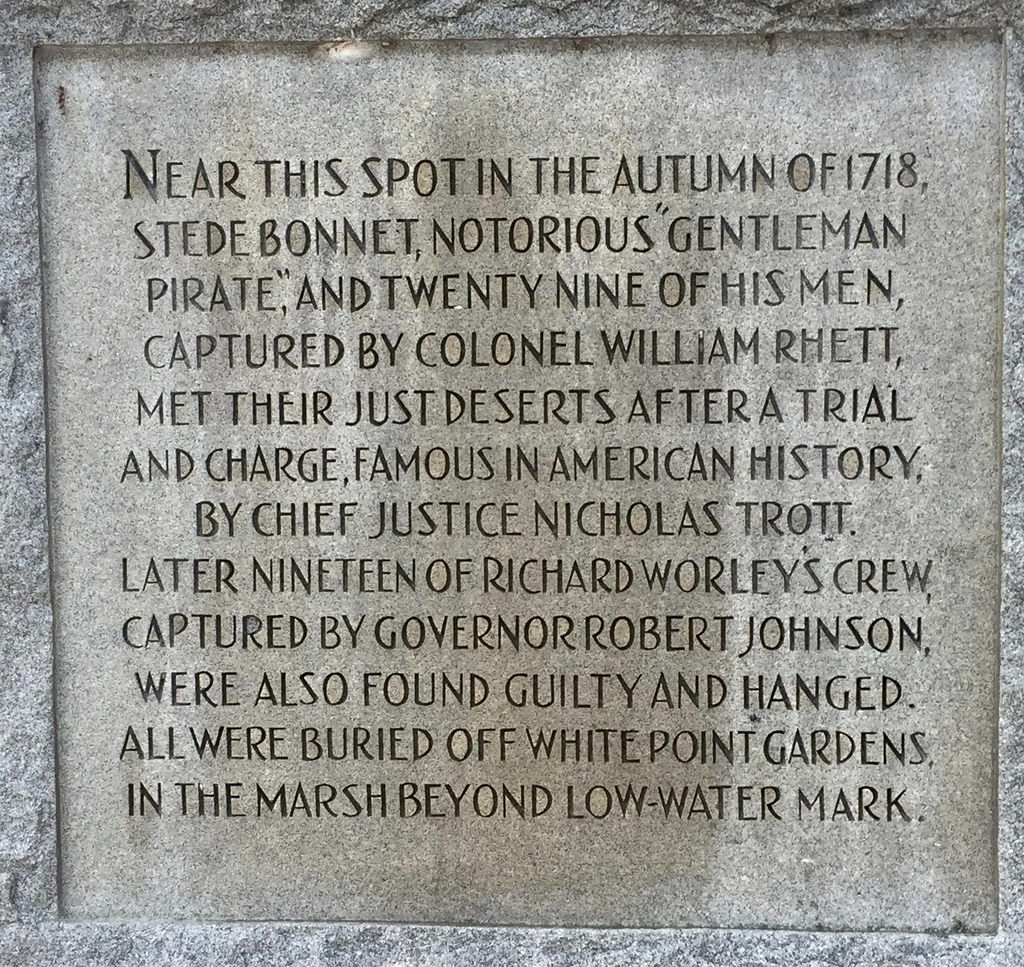
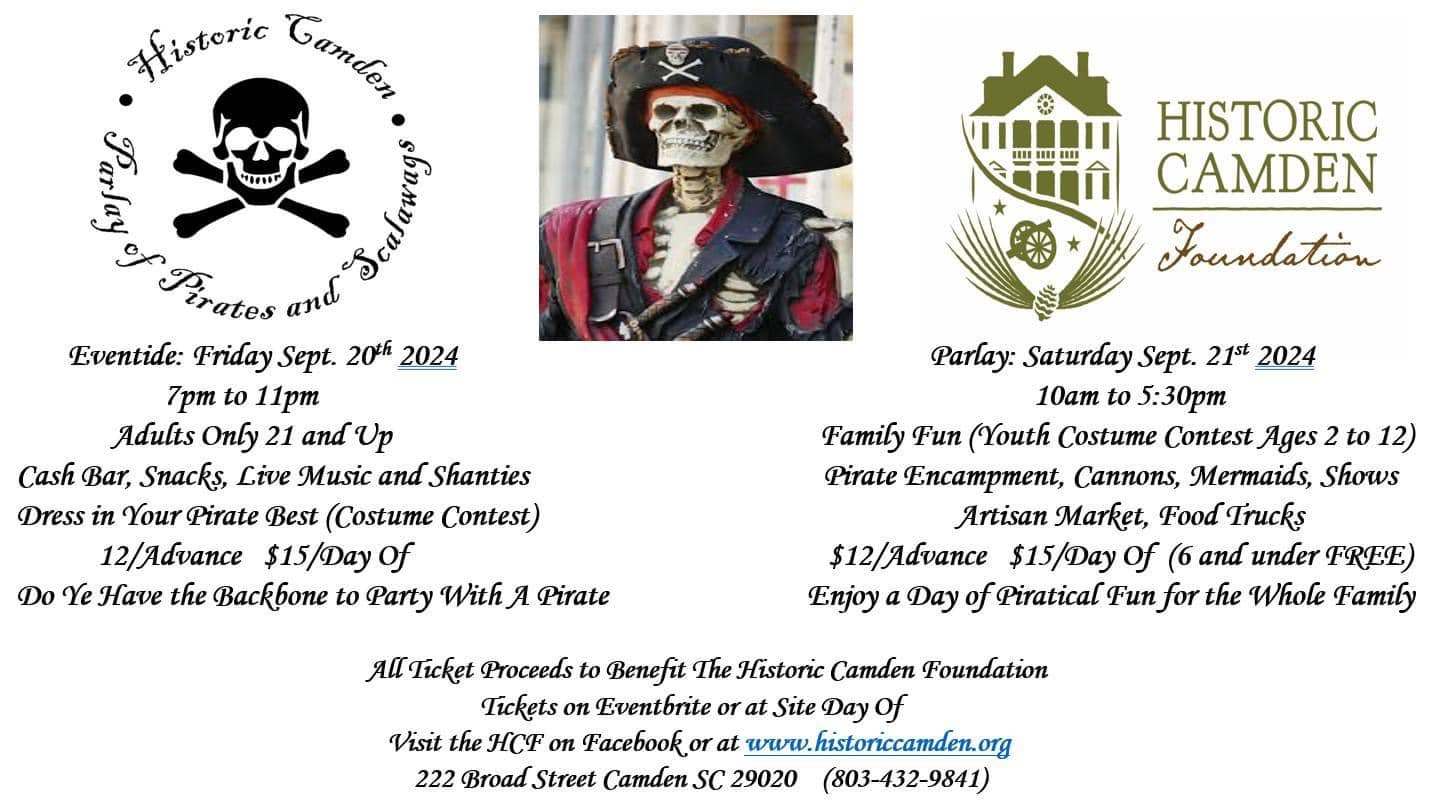
.jpg.f3875b964d445190e2f3ab985c1cb516.jpg)
